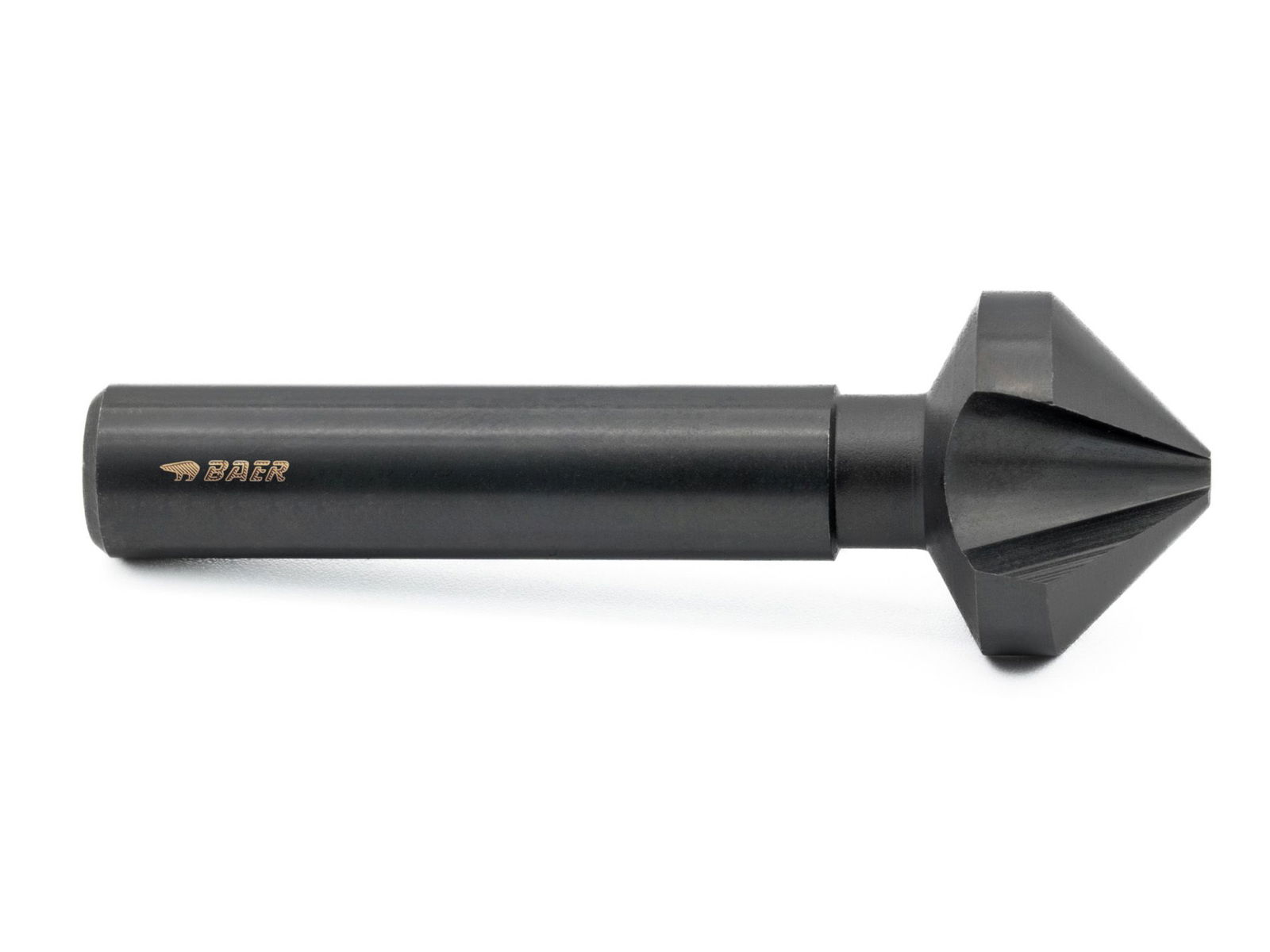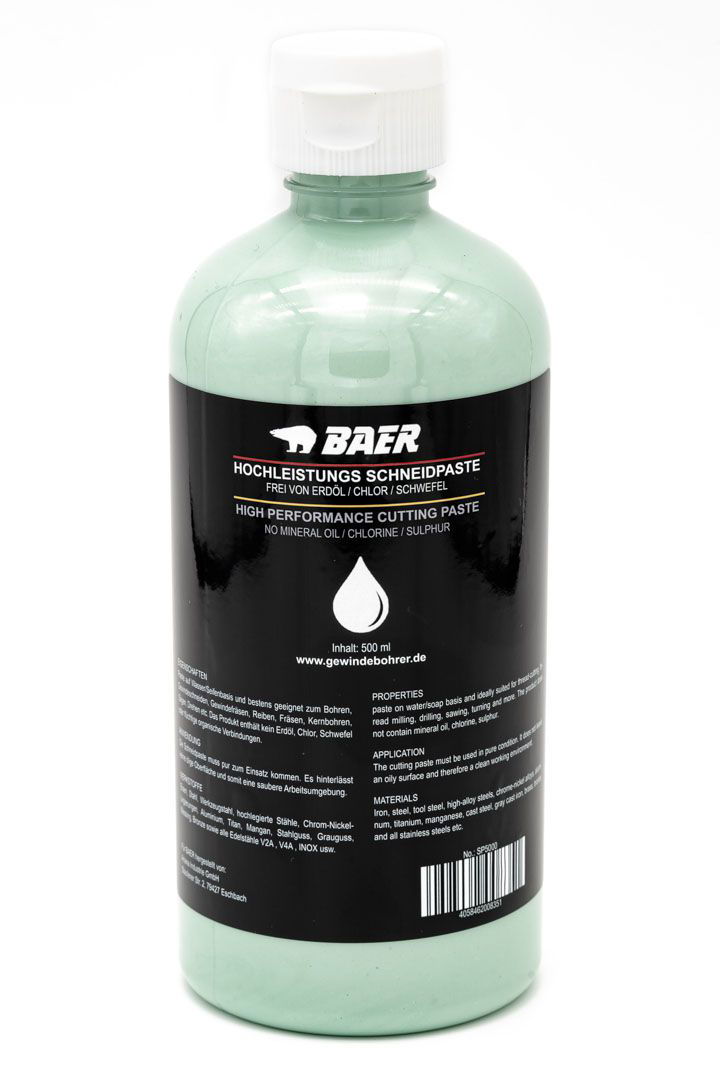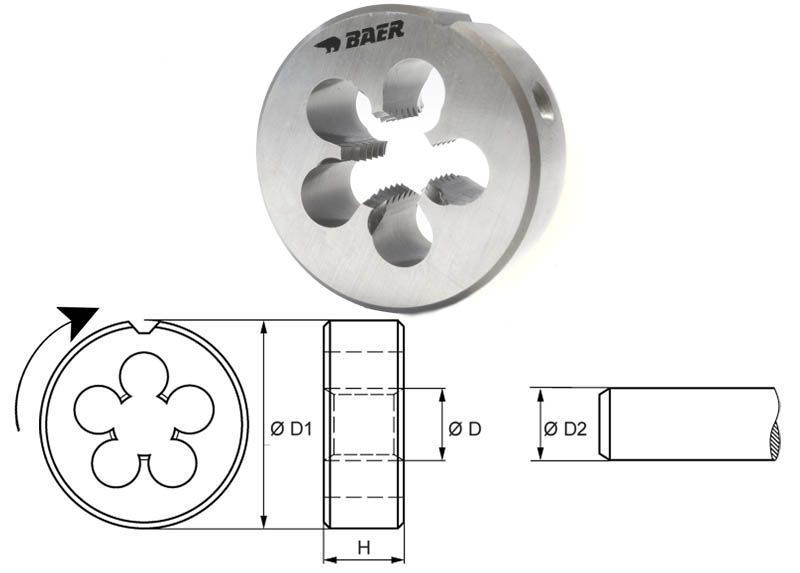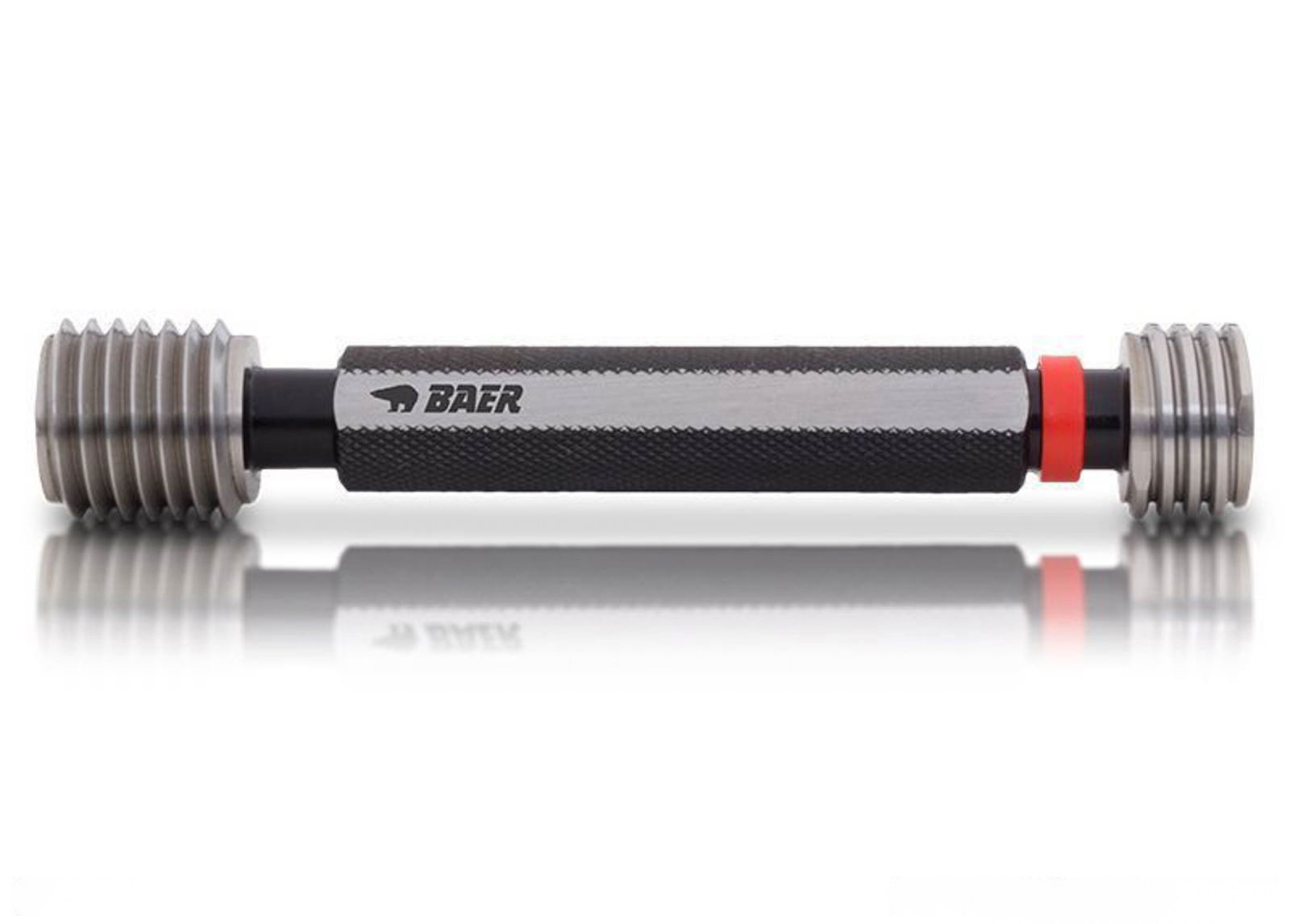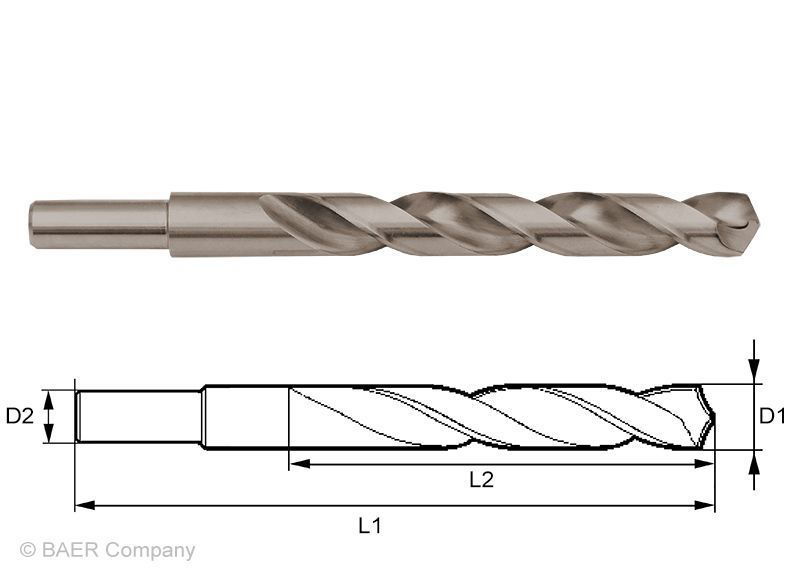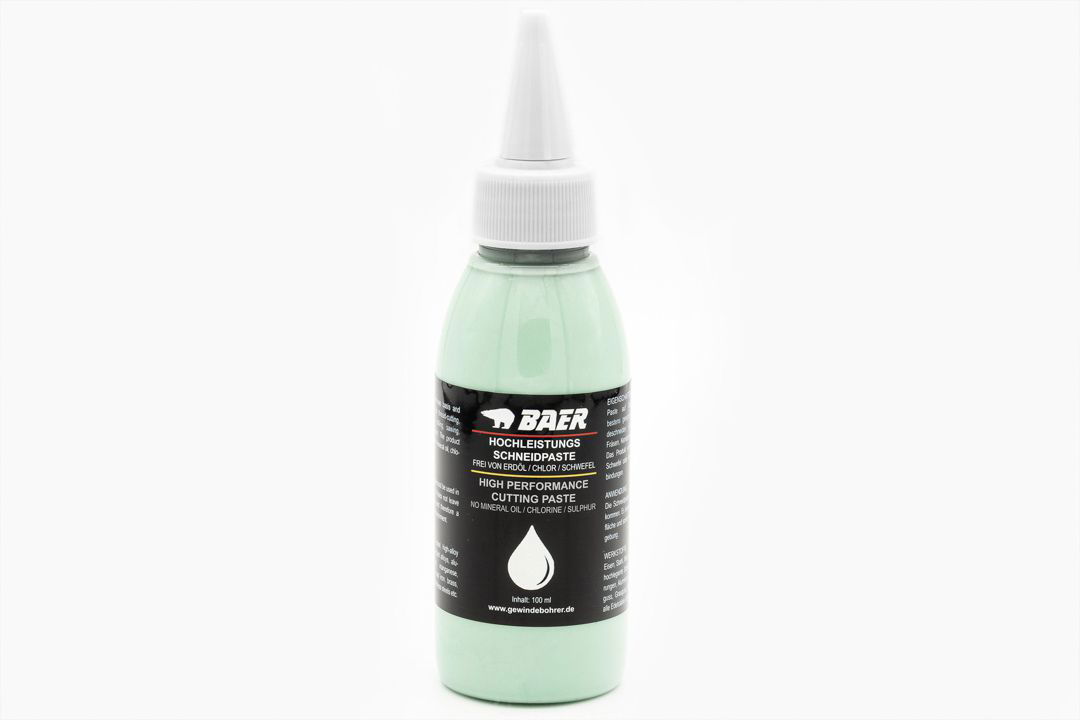BAER HSSE-TiCN Machine Tap Form C for Cast Iron - M 22 x 2.5 - DIN 376
In stock
Express shipping available
BAER HSSE-TiCN Machine Tap Form C for Cast Iron - M 22 x 2.5 - DIN 376
Our machine taps are powerful and reliable taps for efficient machining in one step with the machine. Machine taps are used especially in industrial manufacturing. They can be used in CNC machines, thread cutting machines, cordless drills and pneumatic tapping arms, among others. As they are characterised by high efficiency and low production costs, they are often used in series production. The thread is cut by machine in one operation. Thus, although the BAER machine tap can basically be compared to short machine tap, it is designed for use with the machine.
The screw tap has an overflow shank according to DIN 376. This means that the shank has a smaller diameter than the thread. This means that the screw tap can also be used in deeper holes and longer thread lengths. It can also be used in through holes and for blind holes, as the short chamfer and the straight flutes ensure that the chip remains in the flutes and is not carried away.
Every material shows individual chip behaviour. Therefore, screw taps must have the correct rake angle and - for even better results - a specially treated surface. This is the only way to achieve a good chip transport and to produce a thread that is true to gauge.
The high quality of the cobalt-alloyed HSSE steel we use ensures that our tools are extremely durable and robust. Due to special hardening processes and repeated tempering the hardness structure is very homogeneous, which forms the ideal basis for a genuine BAER screw taps. This increases the toughness and stability of the screw taps, allowing them to remain in use for longer.
The TiCN coating is particularly suitable for use with high-strength steels, abrasive materials and also interrupted cuts, as it is less sensitive to impact loads. TiN is often insufficient and increased demands are made on hardness and toughness, in which case TiCN is used. However, because of the lower heat resistance, a stronger cooling of the TiCN-coated tools is important.
Dimensions
| Diameter |
22 |
|---|---|
| Nominal diameter in inches |
0,866 |
| Nominal diameter in mm |
22 |
| Pitch |
2,5 |
| Pitch in mm |
2,5 |
| Dimension |
M 22 x 2,5 |
| Square |
14,5 mm |
Characteristics
| Product group |
Screw taps |
|---|---|
| Product type |
Machine taps |
| Thread standard |
M: Metric ISO standard thread according to DIN 13 |
| Tolerance |
ISO2/6H |
| Direction |
Right |
| Standard |
DIN 376 |
| Tensile strength at room temperature |
up to 1000 N/mm² | 32 HRC |
| Material |
HSSE TiCN |
Technical information – Screw taps

19.5 mm

Through hole and blind hole up to 2.5 x D

Form C straight fluted

2-3 threads

Rarely occurs. Chips remain in flutes.

External cooling and lubrication

HSSE TiCN

up to 1000 N/mm² | 32 HRC

ISO2/6H
Applications
- Grey cast iron < 1000 N/mm²
- Aluminium casting alloys Si < 5% (short-chipping) < 600 N/mm²
- Copper alloys (short-chipping)
- Brass (short-chipping)
Technical drawing

| D1 |
M 22 x 2.5 |
|---|---|
| D2 |
18 mm |
| L1 |
140 mm |
| L2 |
32 mm |
| Diameter |
22 |
| Square |
14,5 mm |
Application – Sample materials
| Grey cast iron | Cutting speed vc in m/min | |
|---|---|---|
| 0.6010 | GG10 | 40 - 45 |
| 0.6020 | GG20 | 40 - 45 |
| 0.6030 | GG30 | 40 - 45 |
| 0.6040 | GG40 | 40 - 45 |
| Aluminum cast alloys Si > 5% (medium and short-chipping) | Cutting speed vc in m/min | |
|---|---|---|
| 3.2134 | G-AlSi5Cu1Mg | 30 - 40 |
| 3.2381 | G-AlSi10Mg | 27 - 30 |
| 3.2581 | G-AlSi12 | 27 - 30 |
| 3.2583 | G-AlSi12(Cu) | 27 - 30 |
| Copper alloys (short-chipping), brass (short-chipping) | Cutting speed vc in m/min | |
|---|---|---|
| 2.0360 | CuZn40 | 25 - 30 |
| 2.0410 | CuZn44Pb2 | 25 - 30 |
| 2.0550 | CuZn40Al2 | 25 - 30 |
| 2.1086 | G-CuSn10Zn | 25 - 30 |
Cutting speed vc [m/min] = (Outer diameter * π * speed) / 1000
Rotation speed n [1/min] = (Cutting speed in m/min * 1000) / (Outer diameter * π)
Feedrate programming [mm/min] = speed * pitch
Please note that the above cutting speeds are indicative and must be adjusted depending on lubrication and actuation.
Further information
- M - Metric ISO thread DIN 13
- Designations, geometries and definitions on taps
- Thread tolerances of the internal thread
- Internal thread and core hole dimensions
- Tap Chamfer forms
- Comparison inch-mm
- Surface treatments on tapping tools
- Cutting speeds and lubrication/cooling
- Information about tapping
- Material table
Safety instructions
Login











